By Ron | Aug 14, 2023
Books on Imperialism and Colonialism

⭐ ⭐ ⭐ ⭐ ⭐

A Stream of Windows: Unsettling Reflections on Trade, Immigration, and Democracy

⭐ ⭐ ⭐ ⭐ ⭐
African Studies in Social Movements and Democracy

America at the Crossroads: Democracy, Power, and the Neoconservative Legacy

⭐ ⭐ ⭐ ⭐ ⭐
August 1914

⭐ ⭐ ⭐ ⭐ ⭐
Blood in the Sand

Citizen and Subject

Civility: Manners, Morals, and the Etiquette of Democracy

Corporation Nation

Cruel and Unusual

⭐ ⭐ ⭐ ⭐ ⭐
Dark Times
by Ken Coates

Democracia Y Mercado

Democracy and Development

Democracy and Economic Power: Extending the ESOP Revolution Through Binary Economics

Democracy and Populism
by John Lukacs

Democratic Realism

Dilemmas of Democracy and Dictatorship
by Michael Radu

Diminished Democracy

Empire

⭐ ⭐ ⭐ ⭐ ⭐
Failed States: The Abuse of Power and the Assault on Democracy
by Noam Chomsky

Freedom and Time

Globalizing Civil Society
by David Korten

Hearing the Other Side: Deliberative Versus Participatory Democracy

Hidden Power

History and Illusion in Politics

Jacksonian Democracy in New Hampshire, 1800-1851

La Seconde Revolution Tranquille

⭐ ⭐ ⭐ ⭐ ⭐
Necessary Illusions
by Noam Chomsky

Never Again

Never at War

New Communitarian Thinking

Parliaments and Citizens in Western Europe

People Before Profit

Pericles of Athens and the Birth of Democracy
by Donald Kagan

Political Man

Politics Lost: From RFK to W: How Politicians Have Become Less Courageous and More Interested in Keeping Power Than in Doing What’s Right for America
by Joe Klein

Power Kills

Predator Nation: Corporate Criminals, Political Corruption, and the Hijacking of America

⭐ ⭐ ⭐ ⭐ ⭐
Resurrecting Empire

Rights vs. Public Safety After 9/11

Secret Trials and Executions

Take Back Your Government

Ten Days That Shook the World
by John Reed

Terrorism for Humanity

The Age of Reform

The American Statehouse

The Children of Light and the Children of Darkness: A Vindication of Democracy and a Critique of Its Traditional Defenders

⭐ ⭐ ⭐ ⭐ ⭐
The Devil’s Chessboard: Allen Dulles, the CIA, and the Rise of America’s Secret Government
by David Talbot

The Dissent of the Governed

The End of Kings

⭐ ⭐ ⭐ ⭐
The European Dream

The Friendly Dictatorship

⭐ ⭐ ⭐ ⭐ ⭐
The Future of Freedom: Illiberal Democracy at Home and Abroad

The Global Third Way Debate

The Mainspring of Human Progress

The Master Switch
by Tim Wu

The New Golden Rule

⭐ ⭐ ⭐ ⭐ ⭐
The New Industrial State

The Paradox of American Democracy: Elites, Special Interests, and the Betrayal of Public Trust
by John Judis

⭐ ⭐ ⭐ ⭐ ⭐

The Policing of Politics in the Twentieth Century
by Mark Mazower

⭐ ⭐ ⭐ ⭐ ⭐
The Port Huron Statement
by Tom Hayden
A broad critique of the political and social system of the United States for failing to achieve international peace and economic justice. The writers took issue with the US government’s handling of the Cold War,both the existential threat of nuclear war, and the actual arms race. It also critiqued endemic racial discrimination, economic inequality, big business domination, trade union quiescence, and the cooption of political parties. It suggested a series of reforms: including the need to create genuine political parties, to attain greater democracy, to achieve more substantial involvement by workers in business management, and to enlarge the public sector with increased government welfare, including a “program against poverty.” The document advocated nonviolent civil disobedience to bring forth greater “participatory democracy.”

The Powers and Aims of Western Democracy

The Revolt of the Elites

The Rise of American Democracy: Jefferson to Lincoln
by Sean Wilentz

The Russian Tradition

The Story of American Freedom
by Eric Foner

The Structural Transformation of the Public Sphere

The Third Way and Its Critics

⭐ ⭐ ⭐ ⭐ ⭐
The Tragedy of American Diplomacy

The Unknown American Revolution: The Unruly Birth of Democracy and the Struggle to Create America
by Gary B. Nash

The War State: The Cold War Origins of the Military-Industrial Complex and the Power Elite, 1945-1963

The Wheels of Commerce

⭐ ⭐ ⭐ ⭐ ⭐
The Wisdom of W.E.B. Du Bois

V D Nabokov and the Russian Provisional Government, 1917
by V D Nabokov

⭐ ⭐ ⭐ ⭐ ⭐
War and Peace
by Leo Tolstoy

Waves of Democracy
by John Markoff

⭐ ⭐ ⭐ ⭐
We the People

⭐ ⭐ ⭐ ⭐ ⭐
World Revolution of Westernization: The Twentieth Century in Global Perspective

Young America

Afterword
by Howard Zinn
Zinn’s final word for his seminal book, A People’s History of the United States.

A Basic Call to Consciousness: The Hau De No Saw Nee Address to the Western World
Published Geneva, Switzerland, Autumn 1977
by Mohawk Nation
What is presented here is nothing less audacious than a cosmogony of the Industrialized World presented by the most politically powerful and independent non-Western political body surviving in North America. It is, in a way, the modern world through Pleistocene eyes.
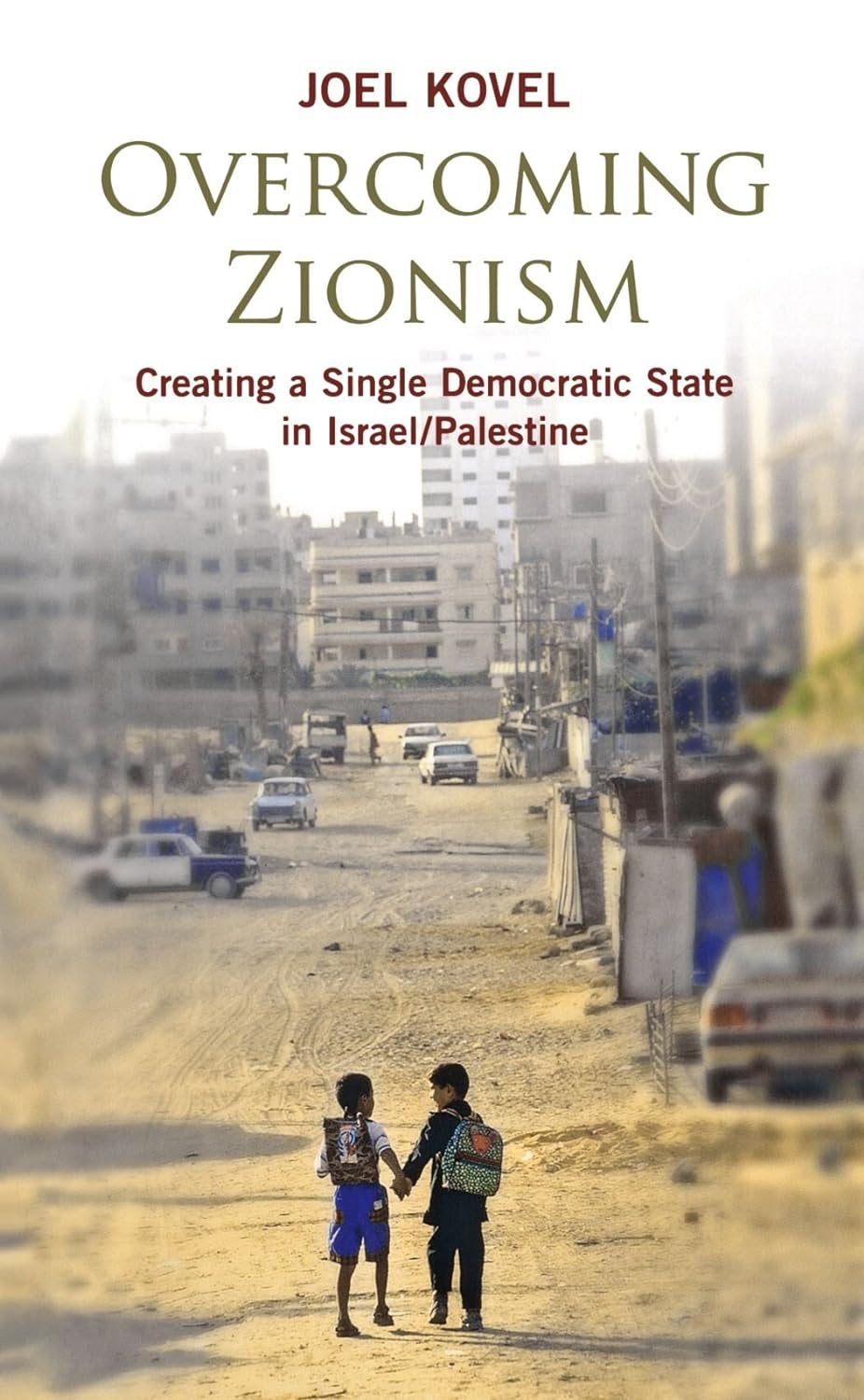
Overcoming Zionism
by Joel Kovel
A call to transform Israel into a secular democracy. This book is fundamental for those who reject the unfortunate confusion between Jews, Judaism, Zionism and the State of Israel – a confusion which is the basis for systematic manipulation by the imperialist power system. It argues in favor of a single secular state for Israelis and Palestinians as the only democratic solution for the region.
Zionism creates a contradiction that eats at the soul and conscience of the Jewish people. The problem is that it is a moral and logical impossibility have a democratic state for only one ethnic group while excluding others. The notion of democracy derives from universal ideals based on universal human rights; it cannot exist where there is systematic inequality, and all the more so when the ‘others’ are the indigenous population.
Zionism creates a contradiction that eats at the soul and conscience of the Jewish people. The problem is that it is a moral and logical impossibility have a democratic state for only one ethnic group while excluding others. The notion of democracy derives from universal ideals based on universal human rights; it cannot exist where there is systematic inequality, and all the more so when the ‘others’ are the indigenous population.

Resurrecting Empire

⭐ ⭐ ⭐ ⭐ ⭐
The Death and Life of Dith Pran
Recounts the experiences of Dith Pran, a Cambodian reporter who worked for the New York Times, and was captured by the Khmer Rouge when they took over Phnom Penh. This is the original book on which the movie and book, “The Killing Fields” was based.
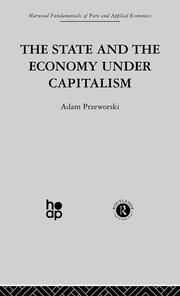
The State and the Economy Under Capitalism
How valid is the Marxian theory of imperialism? This book traces the historical development of the theory of imperialism, the internationalisation of capital and theories of capitalist nation-state formation.
The book’s starting thesis is that state-capitalism is a system in which scarce resources are privately owned, yet under current capitalist systems, property is institutionally separated from authority. As a result, there are two mechanisms by which resources are allocated and distributed: the market and the state.
In the market, productive resources—capital, land, and labor capacity—are allocated by capitalist owners and the distribution of consumption results from decentralized interactions. Yet the state can also allocate and distribute, and it can act on those same resources that constitute private property. Not only can states tax and transfer but they can regulate the relative costs and benefits associated with private decisions. Thus, inherent in state capitalism is a permanent tension between the capitalists’ desires for wealth accumulation and and the democratic or social-welfare goals of the state.
The book’s starting thesis is that state-capitalism is a system in which scarce resources are privately owned, yet under current capitalist systems, property is institutionally separated from authority. As a result, there are two mechanisms by which resources are allocated and distributed: the market and the state.
In the market, productive resources—capital, land, and labor capacity—are allocated by capitalist owners and the distribution of consumption results from decentralized interactions. Yet the state can also allocate and distribute, and it can act on those same resources that constitute private property. Not only can states tax and transfer but they can regulate the relative costs and benefits associated with private decisions. Thus, inherent in state capitalism is a permanent tension between the capitalists’ desires for wealth accumulation and and the democratic or social-welfare goals of the state.

The War Prayer
by Mark Twain
Written in 1905 in response to the Spanish-American War and the subsequent US colonial attack on the Philippines.
- His family feared The War Prayer would be considered sacrilegious. Twain’s publisher and other friends also discouraged him from publishing. Mindful of possible public reactions, Twain self-censored the story until after his death. Twain’s illustrator Dan Beard asked him if he would publish it, and Twain replied, “No, I have told the whole truth in that, and only dead men can tell the truth in this world. It can be published after I am dead.”

⭐ ⭐ ⭐ ⭐ ⭐
Gaza in Crisis: Reflections on Israel’s War Against the Palestinians
In Gaza in Crisis, Noam Chomsky and Ilan Pappé, two of the issue’s most insightful and prominent critical voices, survey the fallout from Israel’s conduct in Gaza and place it into the context of Israel’s longstanding occupation of Palestine.

I Saw Ramallah
Barred from his homeland after the ‘Six-Day War’ in 1967, the poet Mourid Barghouti spent thirty years in exile–shuttling among the world’s cities, yet secure in none of them; separated from his family for years at a time; never certain whether he was a visitor, a refugee, a citizen, or a guest. As he returns home for the first time since the Israeli occupation, Barghouti crosses a wooden bridge over the Jordan River into Ramallah and is unable to recognize the city of his youth. Sifting through memories of the old Palestine as they come up against what he now encounters in this mere ‘idea of Palestine,’ He discovers what it means to be deprived not only of a homeland but of ’the habitual place and status of a person.’

⭐ ⭐ ⭐ ⭐ ⭐
In Search of Fatima: A Palestinian Story
by Ghada Karmi
This widely acclaimed memoir draws you into the life of Ghada Karmi; a childhood spent in Palestine and a life of displacement and struggle in Britain. Here is the human cost of the loss of one’s home and the reshaping of one’s identity written with wit, humour and often heart-breaking insight.

Looking for Palestine
by Najla Said
The daughter of the famous intellectual and outspoken Palestinian advocate Edward Said and a sophisticated Lebanese mother, Najla Said grew up in New York City, confused and conflicted about her cultural background and identity. Said knew that her parents identified deeply with their homelands, but growing up in a Manhattan world that was defined largely by class and conformity, she felt unsure about who she was supposed to be, and was often in denial of the differences she sensed between her family and those around her. She may have been born a Palestinian Lebanese American, but Said denied her true roots, even to herself–until, ultimately, the psychological toll of her self-hatred began to threaten her health.

⭐ ⭐ ⭐ ⭐ ⭐
On Palestine
An erudite and nuanced account of Palestine’s history. First published in 2015, it is an essential guide to understanding the shifting situation and is itself a sequel to their acclaimed book, Gaza in Crisis.

⭐ ⭐ ⭐ ⭐ ⭐
Orientalism
Discusses the situation of the Palestinians, including the history of the Nakba, the dispossession and scattering of the Palestinian diaspora, and the misrepresentation of the Palestinian cause in the Western world. Said also examines the development of Palestinian political movements, particularly the Palestine Liberation Organization led by his then friend, Yasser Arafat, and the changing perceptions of Palestinian groups towards the question of Jewish identity and Israeli statehood.
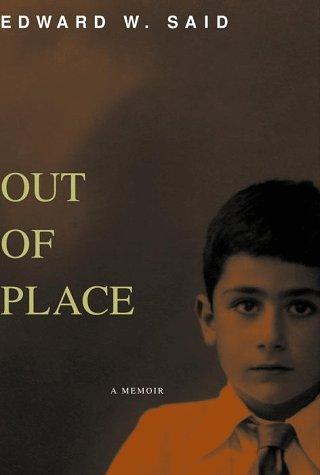
⭐ ⭐ ⭐ ⭐ ⭐
Out of Place
From one of the most important intellectuals of our time comes an extraordinary story of exile and a celebration of an irrecoverable past. A fatal medical diagnosis in 1991 convinced Edward Said that he should leave a record of where he was born and spent his childhood, and so with this memoir he rediscovers the lost Arab world of his early years in Palestine, Lebanon, and Egypt.
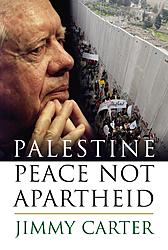
⭐ ⭐ ⭐ ⭐ ⭐
Palestine: Peace Not Apartheid
by Jimmy Carter
Carter argues that Israel’s continued control and construction of illegal settlements has been the primary obstacle to a comprehensive peace agreement in the Middle East. That perspective, coupled with the use of the word Apartheid in the titular phrase ‘Peace Not Apartheid,’ and what critics said were errors and misstatements in the book, sparked an intense backlash. Carter has defended his book and countered that response to it ‘in the real world… has been overwhelmingly positive.‘Later events in the ongoing bombing, dispossession and occupation of Palestinian lands confirm Carter’s conclusions.
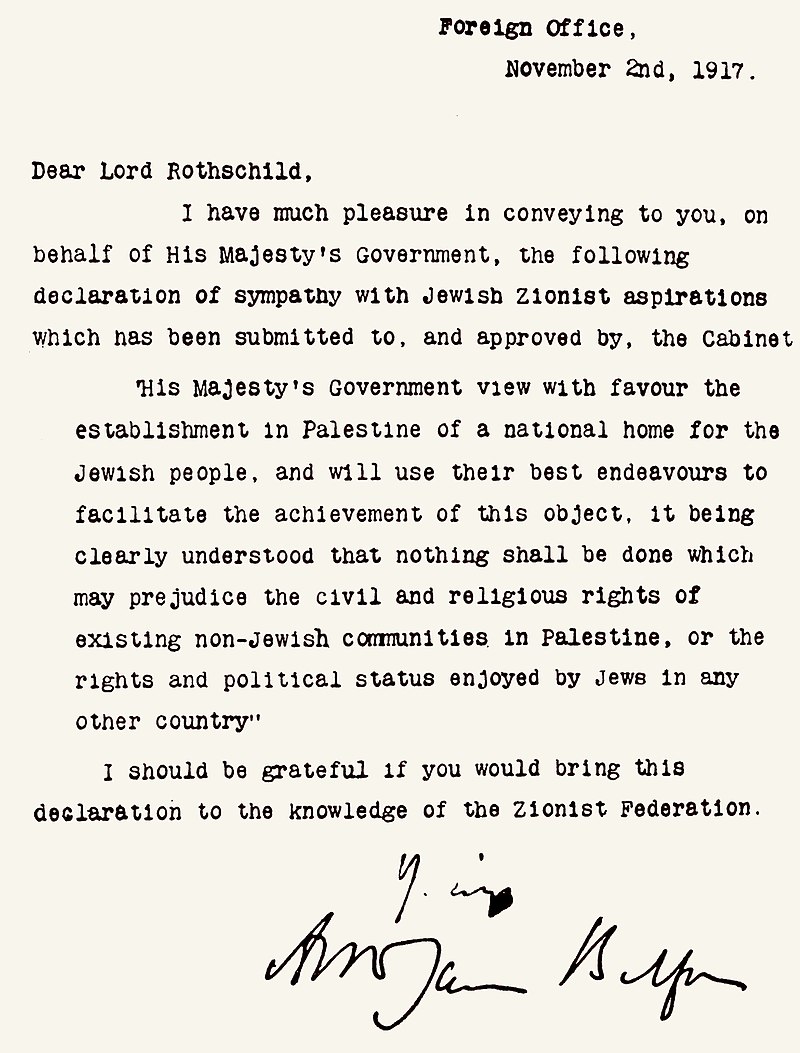
The Balfour Declaration
Issued in London in 1917, the Balfour Declaration was one of the key documents of the twentieth century. It committed Britain to supporting the establishment in Palestine of ‘a National Home for the Jewish people,’ and its reverberations continue to be felt to this day. With new material retrieved from historical archives, Jonathan Schneer recounts in dramatic detail the public and private fight to depopulate and colonize a small strip of land in the Middle East

⭐ ⭐ ⭐ ⭐ ⭐
The Question of Palestine
Published 1979
by Edward W. Said
For a long time, Edward Said was the most high-profile and internationally recognized of Palestinian intellectuals. His untimely death in 2003 was a blow for Palestinian advocacy, especially in the US, where few Palestinian voices are allowed to rise to general public awareness.

⭐ ⭐ ⭐ ⭐ ⭐
A People’s History of the United States
by Howard Zinn
A 1980 nonfiction book presenting a long-neglected side of history that avoids the typical “nationalist glorification of country”. Zinn does not hide or sugarcoat the many tragedies of US history. The book is assigned in many high schools and colleges across the United States, and has inspired in a quiet revolution in the field of historical research, which now commonly includes previously ignored stories.
In a 1998 interview, Zinn said his goal in writing the book was to inspire a “quiet revolution”. “Not a revolution in the classical sense of a seizure of power, but rather from people beginning to take power from within the institutions. In the workplace, the workers would take power to control the conditions of their lives."
In a 1998 interview, Zinn said his goal in writing the book was to inspire a “quiet revolution”. “Not a revolution in the classical sense of a seizure of power, but rather from people beginning to take power from within the institutions. In the workplace, the workers would take power to control the conditions of their lives."
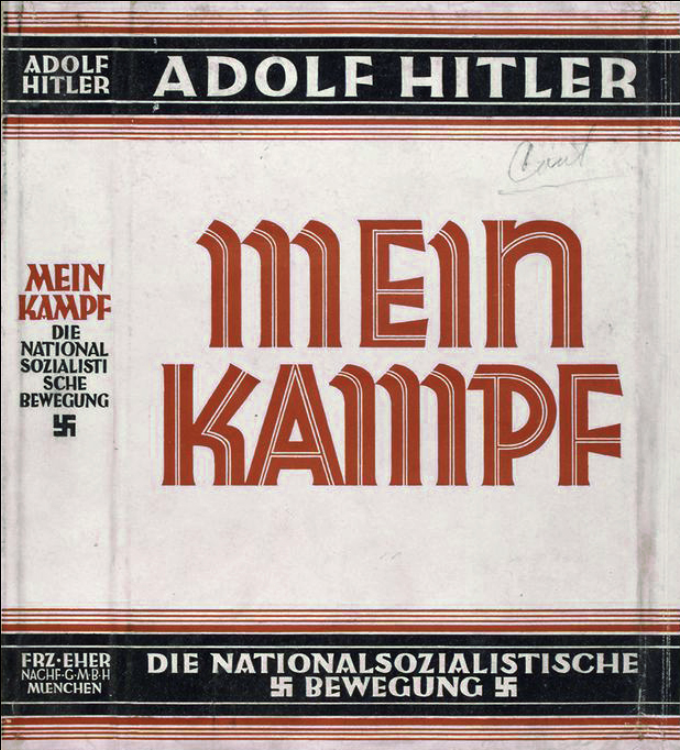
Mein Kampf (My Fight)
by Adolf Hitler
Required reading for all would-be fascists, and those who seek to understand and resist. Hitler originally wanted to call his book Viereinhalb Jahre (des Kampfes) gegen Lüge, Dummheit und Feigheit, or Four and a Half Years (of Struggle) Against Lies, Stupidity and Cowardice. Max Amann, head of the Franz Eher Verlag and Hitler’s publisher, is said to have suggested the much shorter “Mein Kampf”.
Although Hitler originally wrote Mein Kampf for the at that time small group of followers of National Socialism, it grew in popularity after he rose to power. Hitler had made about 1.2 million Reichsmarks from the book by 1933 (equivalent to €4,714,299 in 2009), when the average annual income of a teacher was about 4,800 Marks (equivalent to €18,857 in 2009). He accumulated a tax debt of 405,500 Reichsmark (roughly in 2015 1.4 million EUR) from the sale of about 240,000 copies before he became chancellor in 1933 (at which point his debt was waived).
Hitler began to distance himself from the book after becoming chancellor of Germany in 1933. He dismissed it as “fantasies behind bars” that were little more than a series of articles for the Völkischer Beobachter, and later told Hans Frank that “If I had had any idea in 1924 that I would have become Reich chancellor, I never would have written the book.” Nevertheless, Mein Kampf was a bestseller in Germany during the 1930s. During Hitler’s years in power, the book was in high demand in libraries and often reviewed and quoted in other publications. It was given free to every newlywed couple and every soldier fighting at the front. By 1939 it had sold 5.2 million copies in eleven languages. By the end of the war, about 10 million copies had been sold or distributed in Germany.
Although Hitler originally wrote Mein Kampf for the at that time small group of followers of National Socialism, it grew in popularity after he rose to power. Hitler had made about 1.2 million Reichsmarks from the book by 1933 (equivalent to €4,714,299 in 2009), when the average annual income of a teacher was about 4,800 Marks (equivalent to €18,857 in 2009). He accumulated a tax debt of 405,500 Reichsmark (roughly in 2015 1.4 million EUR) from the sale of about 240,000 copies before he became chancellor in 1933 (at which point his debt was waived).
Hitler began to distance himself from the book after becoming chancellor of Germany in 1933. He dismissed it as “fantasies behind bars” that were little more than a series of articles for the Völkischer Beobachter, and later told Hans Frank that “If I had had any idea in 1924 that I would have become Reich chancellor, I never would have written the book.” Nevertheless, Mein Kampf was a bestseller in Germany during the 1930s. During Hitler’s years in power, the book was in high demand in libraries and often reviewed and quoted in other publications. It was given free to every newlywed couple and every soldier fighting at the front. By 1939 it had sold 5.2 million copies in eleven languages. By the end of the war, about 10 million copies had been sold or distributed in Germany.
- A variety of restrictions, annotations or special circumstances apply in many countries.
- The U.S. government seized the copyright in September 1942 during the Second World War under the Trading with the Enemy Act
- The government of Bavaria, in agreement with the federal government of Germany, refused to allow any copying or printing of Mein Kampf in Germany. It also opposed copying and printing in other countries, but with less success.
- Under German copyright law, the entire text entered the public domain on January 1, 2016, 70 years after the author’s death.
- In 1999, the Simon Wiesenthal Center documented that the book was available in Germany via major online booksellers such as Amazon and Barnes & Noble. After a public outcry, both companies agreed to end these sales to addresses in Germany.
- In March 2020, Amazon banned sales of new and second-hand copies, and several other Nazi publications, on its platform.

Resurrecting Empire

⭐ ⭐ ⭐ ⭐ ⭐
The Origins of Totalitarianism
Published 1951
by Hannah Arendt
Arendt explores the institutions and operations of totalitarian movements, focusing on two major forms of totalitarian government in our time–Nazi Germany and Stalinist Russia–which she recognizes as two sides of the same coin, rather than opposing philosophies of Right and Left. From this vantage point, she discusses the evolution of classes into masses, the role of propaganda in dealing with the nontotalitarian world, the use of terror, and the nature of isolation and loneliness as preconditions for total domination.
The Origins of Totalitarianism begins with the rise of anti-Semitism in Europe in the 1800s and continues with an examination of European colonial imperialism from 1884 to the outbreak of World War I, and then traces the emergence of racism as an ideology, and its modern application as an “ideological weapon for imperialism”, by the Boers during the Great Trek (1830s–40s) in the early 19th century.
Arendt argues that totalitarianism was a “novel form of government,” that “differs essentially from other forms of political oppression known to us such as despotism, tyranny and dictatorship” in that it applied terror to subjugate mass populations rather than just political adversaries.
Arendt also theorized that, owing to its peculiar ideology, “totalitarianism has discovered a means of dominating and terrorizing human beings from within”
She further contends that Jewry was not the operative factor in the Holocaust, but merely a convenient proxy, and that totalitarianism in Germany was, in the end, about terror and consistency, not eradicating Jews only. This is consistent with recent research indicating that Hitler greatly admired and emulated US methods for the extermination of Native Americans and the subjugation of enslaved Africans. A key concept is the application of Kant’s phrase “Radical Evil”, which she applied to the people who created and carried out such tyranny and their depiction of their victims as “Superfluous People”.
The book is regularly listed as one of the best non-fiction books of the 20th century, however due to her couragious recognition that similar forces were at work in Zionist Israel and Capitalist America, her ideas are often ignored or misquoted in corporate media and mainstream academic research.
The Origins of Totalitarianism begins with the rise of anti-Semitism in Europe in the 1800s and continues with an examination of European colonial imperialism from 1884 to the outbreak of World War I, and then traces the emergence of racism as an ideology, and its modern application as an “ideological weapon for imperialism”, by the Boers during the Great Trek (1830s–40s) in the early 19th century.
Arendt argues that totalitarianism was a “novel form of government,” that “differs essentially from other forms of political oppression known to us such as despotism, tyranny and dictatorship” in that it applied terror to subjugate mass populations rather than just political adversaries.
Arendt also theorized that, owing to its peculiar ideology, “totalitarianism has discovered a means of dominating and terrorizing human beings from within”
She further contends that Jewry was not the operative factor in the Holocaust, but merely a convenient proxy, and that totalitarianism in Germany was, in the end, about terror and consistency, not eradicating Jews only. This is consistent with recent research indicating that Hitler greatly admired and emulated US methods for the extermination of Native Americans and the subjugation of enslaved Africans. A key concept is the application of Kant’s phrase “Radical Evil”, which she applied to the people who created and carried out such tyranny and their depiction of their victims as “Superfluous People”.
The book is regularly listed as one of the best non-fiction books of the 20th century, however due to her couragious recognition that similar forces were at work in Zionist Israel and Capitalist America, her ideas are often ignored or misquoted in corporate media and mainstream academic research.

⭐ ⭐ ⭐ ⭐ ⭐


3 the Children of Light and the Children of Darkness: A Vindication of Democracy and a Critique of Its Traditional Defenders
jdfalk;sdf a;lsdkjf

And the Weak Suffer What They Must?
From the author: My new book offers a history of Europe’s monetary union. America [sic, he means the US] plays a central role in the narrative. Indeed, the book begins with developments in Washington D.C. in the run up to the Nixon Shock of August 1971 but also ends with an account of how the Eurozone’s crisis affects the United States and the world economy today. In between, the story of how Europe mishandled its yearning for a common currency by never having learned the lessons that US policy makers learned the hard way in the 1930s and 1940s; namely that if the burden of crisis falls upon the ‘weak’, capitalism goes into hideous spasms that threaten its very existence. Thus the fate of the global economy hangs in the balance, and Europe is doing its utmost to undermine it, to destabilize America, and to spawn new forms of authoritarianism. Europe has dragged the world into hideous morasses twice in the last one hundred years… it can do it again.
Copyright (c) 2024, Ron Liskey



